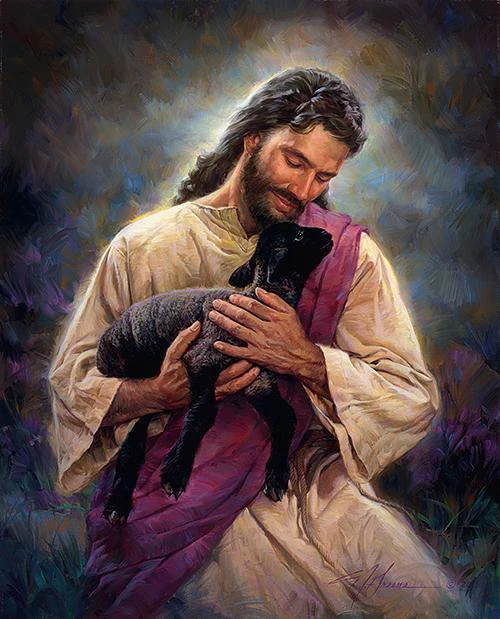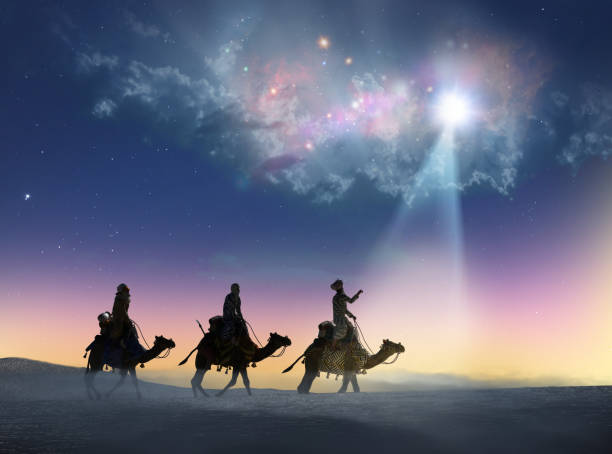Single-Life Is A Vocation Too
Rev. Marcel Divine Emeka Okwara, CSsR
Homily for the Fourth Sunday in the Ordinary Time, Year B
St. Alphonsus Catholic Church, Brooklyn Center, MN
Sunday, January 28, 2024
Over the years as a priest, I have preached on the wonderful vocation of marriage; I’ve preached on the vocation to the priesthood and religious life. But during the week, it occurred to me that in my nearly 17 years as a priest, I have not really focused my attention on the single life. Well, that ends today. Let’s talk about the vocation to single life. In many African societies, marriage or getting married is not optional. When a young man or woman comes of age, they are expected to get married and raise their own family. If a young man is delaying getting married, the parents and the immediate community are worried. When a young woman is showing less interest in marriage, or postponing getting married, the parents are deeply worried. From time to time, she will be reminded that a woman’s ability to become pregnant and raise children is not open-ended. In some cases, everyone in the family will turn against her for refusing to get married. For most African Christian families, young people have two options before them: get married or become a priest or a nun. End of the story. And if a young man is not a priest and doesn’t want to marry, something is wrong with him. If a young woman is not a religious nun and does not want to marry, something is wrong with her. But in the 1 Corinthians 7, St. Paul says, wrong, wrong, wrong! In fact, St. Paul itemizes some of the advantages of single life. Although marriage is important to the design of creation, although marriage is central to God’s original intention for the human race, it isn’t for everyone, and from the biblical standpoint, there is a lot to be said about the advantages of single life.
Now, what will make someone opt for a single life? One, not being able to find a suitable partner. Two, family emergencies. Three, disability or debilitating medical problems that may prevent them from entering into a permanent vocation of marriage. Four, death of a spouse. Five, financial difficulties. Six, fear of divorce etc. The Catechism of the Catholic Church in paragraph 1658 acknowledges the reality of the great number of single people who may be single not by their choosing but possibly by life circumstances, and it reminds us to be mindful of them and to help them know that they are part of the one family of God. But in my pastoral ministry, I have encountered men and women who did not fit into the categories mentioned above, but yet choose to be single for the rest of their lives. For what reason, you might ask? Some for selfish reasons, but I am not talking about those people, rather about those who opted for the single life in order to devote their entire life to God. St. Paul says, “An unmarried man is anxious about the things of the Lord, how he may please the Lord…An unmarried woman or a virgin is anxious about the things of the Lord, so that she may be holy in both and spirit” (1 Corinthians 7:32,34). More to it, there are some men and women who previously had attempted marriage. They were married, they had a taste of marriage but later realized it is not their thing. Once the marriage collapses through divorce and annulment, they decide to spend the rest of their life in complete devotion to God and the Church. Such people should be respected and not demonized for they too have a special place in the heart of Jesus. If you are one of them, do not feel inferior. If you feel bad that the church does not talk about you, doesn’t recognize you and doesn’t see you, I am so sorry. Remember that Jesus sees you. You are especially close to his Sacred Heart, for Jesus too was a single man.
What’s the major factor of the vocation to single life? Chastity! Worldly people think it is not possible to live a chaste life, but we know that with God all things are possible. The great St. Paul says “I can do all things through Christ who strengthens me” (Philippians 4:13). So, a single life devoted to God alone is possible. And it is not a disease. It does not suggest that something is wrong with someone. It does not necessarily mean that a woman or a man did not find a life partner or that they are too difficult to live with. To some people, the single life is their call and they should be respected, welcomed and loved by members of the Church.
But why does St. Paul value singleness over married life? Because he believed it was not accompanied by the same anxieties as marriage. He believed that the single man or woman is less distracted by the goods of the world. As single persons, St. Paul believed their singular goal would be God alone. But is that the reality we see today? Not at all! Since the days of St. Paul, a lot has changed. Today, it is unmarried men who are the most worldly, the most irreligious, the most violent, the most murderous, the most drug-addicted, the most anti-God, anti-Christ, anti-religious, anti-moral, and most irresponsible class of people in the world. To married people, listen to what St. Paul said, “a married man is anxious…how he may please his wife… a married woman, on the other hand, is anxious about …how she may please her husband.” To all of you who are married, is that true of you? Is it true that in the long list of all you do, pleasing your spouse is the numero uno? One of the things weakening marriages today is personal projects, personal ambition, selfishness, greed, marrying for the purpose of attaining certain material things, treating marriage as a transactional matter etc. If you give me this, I will give you that. If what St. Paul said is true today, that a married man is primarily concerned with pleasing his wife, and a married woman is primarily focused on pleasing the husband, the marriage institution will be stronger, the family will be thriving, the church will be soaring, and the society will be more functional.
What’s the bottom-line? This world is passing away! If you have made the decision to be single, serve the Lord faithfully. Do not be that African elder who says he does not eat certain animal meat, but when the children roast the same meat, he says to them, “Bring it here and let me use my teeth to divide it for all of you.” Keep your mind, heart and body pure. If you are married, love your spouse deeply but not more than God. Love your children, but not more than God. Enjoy your career and profession, but not more than you enjoy God. Keep one eye on your spouse and two eyes on God. Keep one eye in your children and in the family, and two eyes on God. Your marriage will someday come to an end. Your relationship with your husband and wife will cease. Your devotion to your children and your entire family will fade. But your relationship with God lasts till eternity. This is the reason why the great late Archbishop G.G. Ganaka of Nigeria said, “God should come first, second and third in your life, before anything else.”







